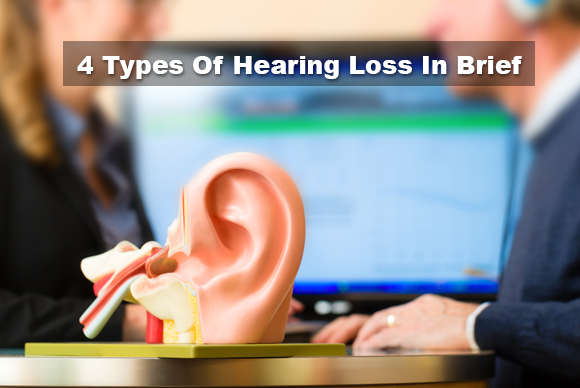4 Types Of Hearing Loss In Brief
‘We have 2 ears and 1 mouth, that is why we should hear twice as much as we speak’.
It is often said by elders to the youngsters demonstrating the value of listening before acting regarding anything. Indeed it is crucial to have a sound hearing to understand everything around us. It is often mistakenly assumed that hearing loss occurs only for much older people or those who suffer any kind of injury directly over their ears or those who love to listen to loud music over earphone for long hours. However, there are several types of hearing loss. Let’s study them in brief.
1. Conductive Hearing Loss
This type of hearing loss arises due to some damage or blockage in the outer or middle ear. In this case, the sound signal does not pass from the ear canal to the eardrum or from eardrum to the inner ear. It can either be due to clogged earwax, built up fluid of ear glue, persistent infection, abnormal ear bone growth, a perforated eardrum or severe allergies.
It is most common among young children and can be easily treated with over the counter drugs, ear drops or simple ear cleaning procedures.
2. Sensorineural Hearing Loss
This type of hearing loss arises due to the malfunction or damage in the cells of cochlear. It requires immediate and extensive treatment as an unresolved condition can lead to permanent hearing loss. Often it requires assisting implants to control the situation.
3. Mixed Hearing Loss
This type of hearing loss is triggered by the presence of the previous two causes together. Out of these, often the sensorineural hearing loss is permanent and the conductive hearing loss is either temporary or permanent.
4. Auditory Neuropathy Hearing Loss
This type of hearing loss arises from a damaged or malfunctioning auditory nerve transmission between the cochlear and the brain. It triggers due to the cut off the oxygen supply, or some other neurological issue. The degree of hearing loss can fluctuate anywhere between normal to a profound and distinguishing speech from background noise is particularly challenging for such people.
Usually, the mild or temporary hearing loss can be effectively corrected with mild medication. However, several hearing implants and bone anchored hearing aids are also used on patients with high severity or total hearing loss. At ILS Hospitals, our ENT specialists offer advanced forms of audial assisted technique including cochlear implants and other forms of extensive treatment.











